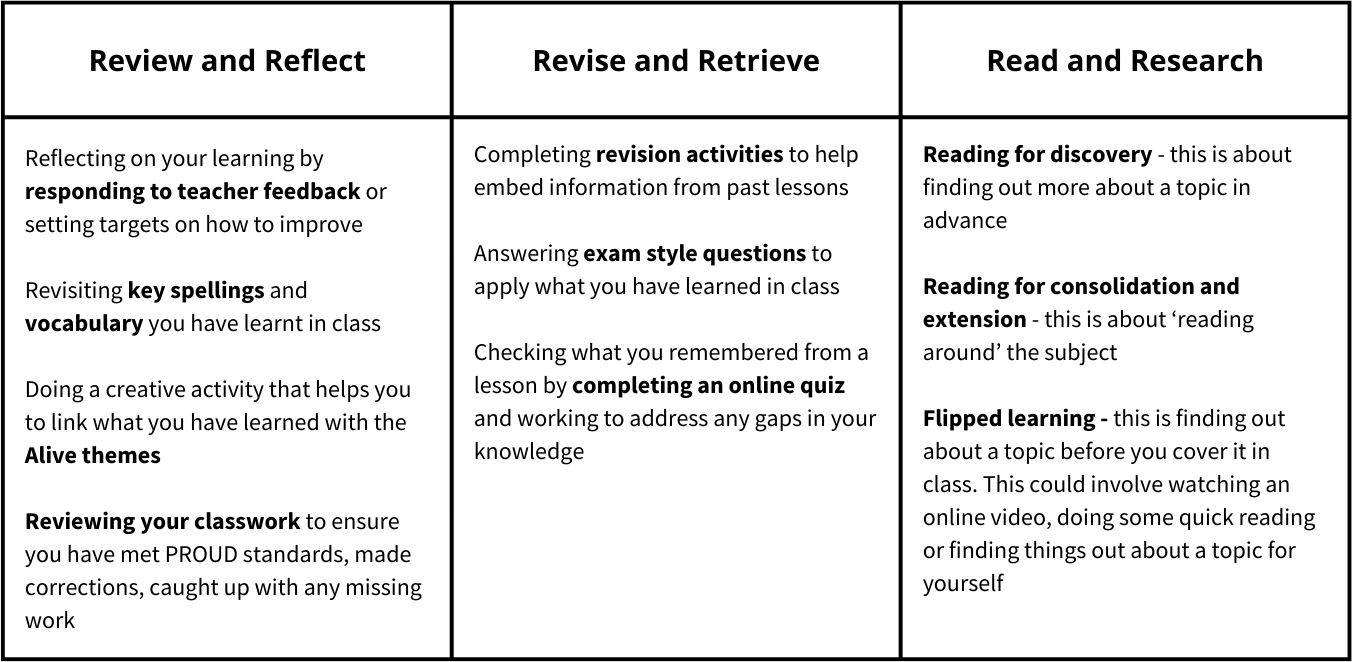Film Studies Key Stage 5
Vision
In Film Studies, we want all students to leave the course with a wide range of practical film-making skills and an ability to read a variety of film forms. An increased awareness of the influence of film on reflecting and questioning the ‘world’. An awareness of how film forms are constructed in terms of cinematography, meaning and response and contexts.
Curriculum Overview
In KS5 Film Studies, students complete a series of modules based on different film texts from different time periods – Hollywood 1930-1990, American Film since 2005, British Film since 1995, Global Film, Documentary Film, Silent Cinema, and Experimental Film (1960-2000). The modules encompass both historical and contemporary media contexts and are studied alongside a wide range of film perspectives and theories. Each module studied throughout the course is assessed using past exam questions once each module is completed. There are also mock exams at different stages throughout the course – Winter Year 12, Summer Year 12, Autumn Year 13, and Spring Year 13. These mock exams give a clear sense of progression. The Coursework element of the course is completed at the end of Year 12 and the beginning of Year 13 and reviewed in Spring Year 13.
Sequencing, Setting and Support
Students analyse a range of film texts and forms incorporating discussion and use of film theory and terminology. Through analysis of key sequences, discussion of representation in texts, writing responses exploring concepts such as ideology, narrative and spectatorship, creating knowledge organisers using careful planning, research, and application, students incrementally build their knowledge and can apply their expanding range of terminology and theoretical knowledge to each new film in turn. Coursework is largely completed at the end of Year 12 and the beginning of Year 13 and reviewed in Spring Year 13. A comprehensive revision schedule is enacted in the Spring and Summer of Year 13.
Film Studies at KS5 is taught in mixed ability sets. The curriculum, teaching and classroom activities invite stretch and challenge for higher ability students and support and consolidation for those students for whom the material presents differing obstacles.
Teachers have high expectations of all our students, especially those with SEND, disadvantaged students, those with EAL and the more able. Teachers in Film Studies deploy a range of strategies which provide appropriate support and challenge to individual students. For example, use the film language and theory terminology sheets for EAL and SEND students. Teachers use prior assessment data and additional information to create a detailed seating plan to ensure a classroom environment which maximises outcomes for all students, recording key strategies on this plan as appropriate. Make sure this is fluid and encourages students to work with a variety of different people in class – this is integral to the values of Film Studies as a course. Teachers help students to develop their communication skills, using appropriate strategies to develop their confidence, comprehension and fluency and use a range of media forms to analyse and discuss texts.
Alive Themes in Film Studies
Students develop an understanding of a range of contemporary and historical film texts and forms reflecting both national and international contexts, issues, and representations. Film Studies foregrounds the ALIVE theme ‘I am Creative’ which encourages students to interpret key concepts through their own written and visual imagination. This is particularly important when approaching the coursework element of the course. Film Studies, through classroom teaching and activities, also prioritises the ALIVE themes of ‘I can communicate’, and ‘I am questioning’.
Assessment in Film Studies
Teachers of Film Studies at KS5 use formative assessment to provide regular feedback to students so they are clear on how to improve in this lesson or module, for example, verbal feedback or live marking, and use this information to inform teaching. Teachers use example or past A Level questions at the end of each unit and use summative assessment to make an accurate and informed judgement about students’ progress at a maximum of three points during the academic year.
In addition, teachers of Film Studies, help students to plan and review their work, including responses to summative assessment, for example, ‘green pen’ activities in response to A Level questions and ensure that the students know what they need to revise for any assessment or exam. Students know how to revise effectively for this subject using the A Level revision area on Moodle and teachers provide regular opportunities to use and develop retrieval strategies.
Homework and how Parents/Carers Support Learning
All homework is set on Bromcom which is an app and website available to students and parents/carers. Further information is available on our Bromcom parents and carers support page.
These are the principles which underpin our homework.

The setting of weekly homework tasks and activities actively supports what is learnt in the classroom.
Teachers of Film Studies aim to raise students’ aspirations and engagement through the setting of homework that is engaging, and which provides opportunities for students to reinforce and develop their knowledge, understanding and creativity. A range of homework can be seen on Moodle and Digital Resources page of the EDUQAS A Level Film Studies website.
As homework is set on Bromcom this encourages good organisation skills. Teachers of Film Studies check that all students access the homework and teach students how to build their resilience when faced with challenging activities.
At KS5, homework in Film Studies is supplemented by ‘hour-for-an-hour’ tasks. These are often further reading or research tasks which encourage students to develop an interest in, and understanding of, the subject in line with, and often beyond, the curriculum.
All these resources and methods or access and recording are available to parents and guardians to enable them to support the student with the homework that is set (see links below).




